25+ Sample Apartment Contract Templates
-
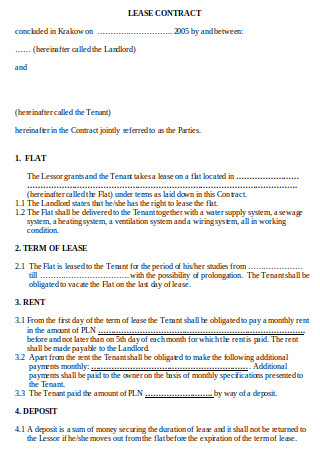
Lease Contract Sample
download now -
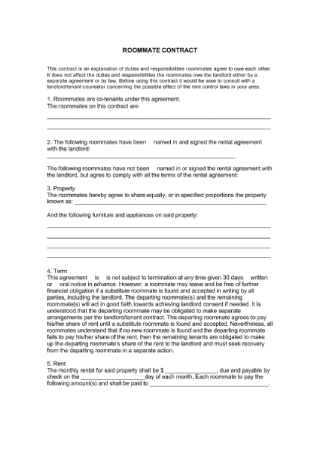
Sample Roommate Contract
download now -
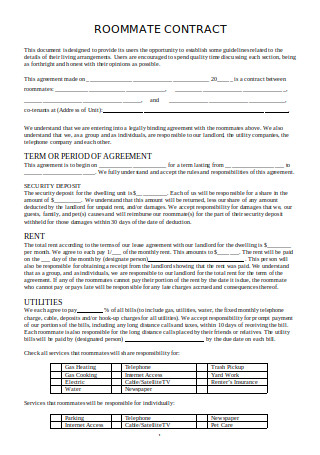
Sample Roommate Contract in DOC
download now -
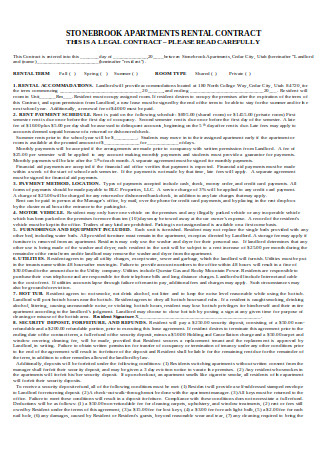
Apartment Rental Contract
download now -
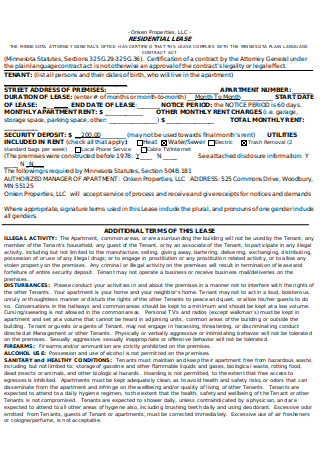
Residential Lease Contract
download now -
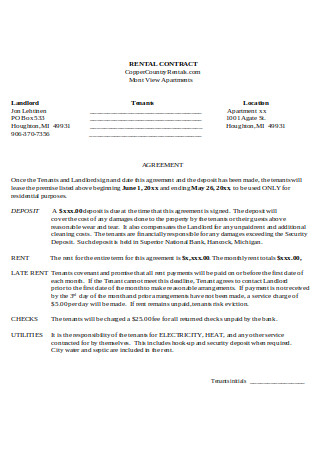
Rental Contract Sample
download now -
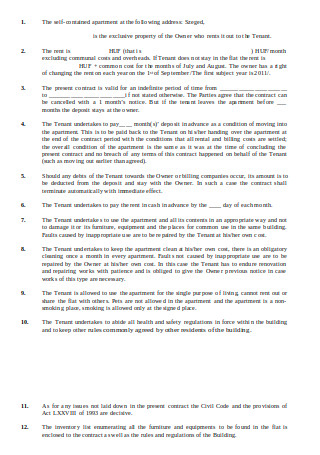
Apartment Rental Contract Sample
download now -
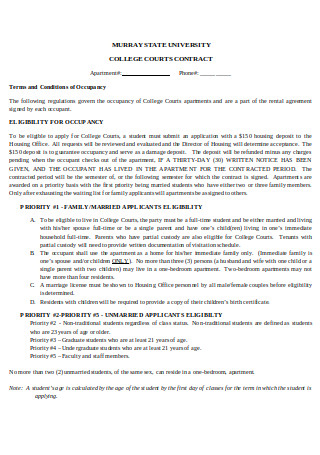
College Court Contract
download now -
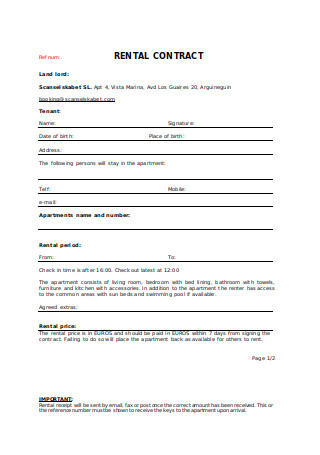
Sample Rental Contract
download now -
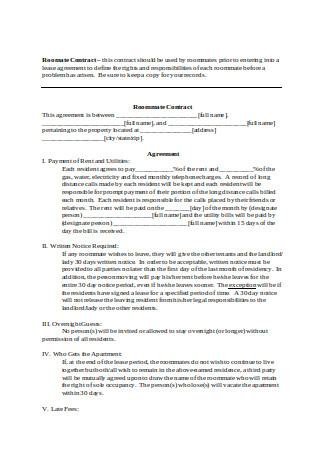
Roommate Contract
download now -
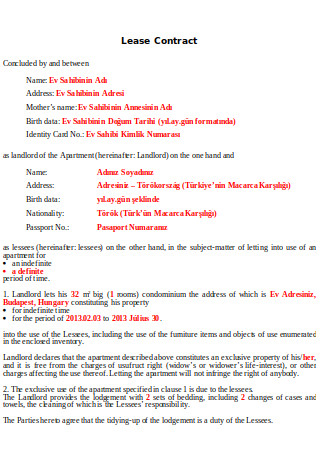
Apartment Letting Contract
download now -
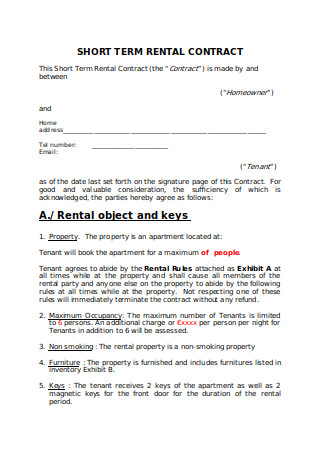
Short Term Rental Contract
download now -
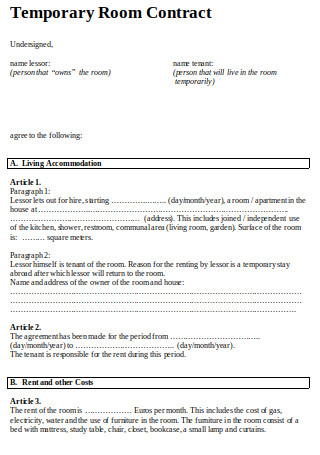
Temporary Room Contract
download now -
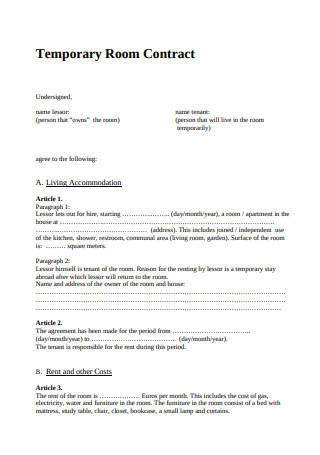
Temporary Room Contract in PDF
download now -
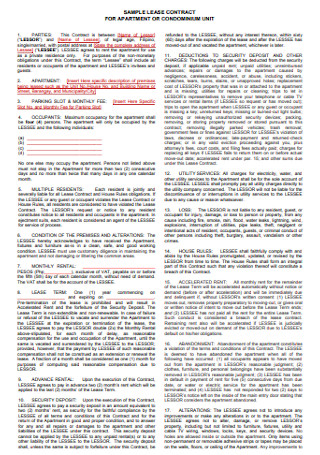
Sample Lease Contract for Apartment
download now -
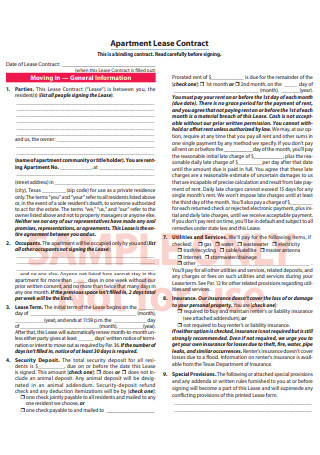
Apartment Lease Contract
download now -
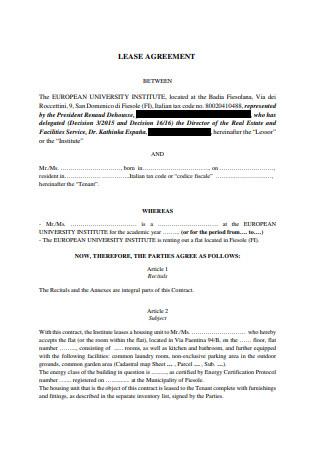
Transitory Lease Contract
download now -
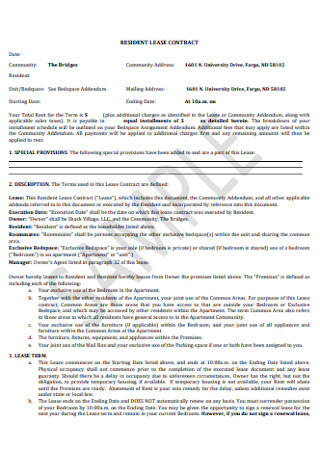
Residential Lease Contract Sample
download now -
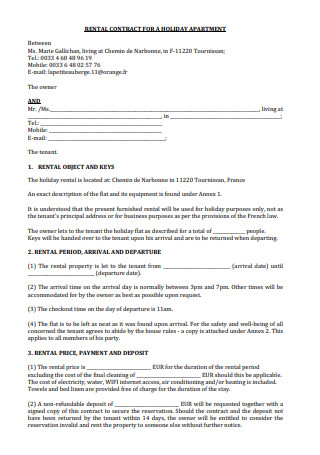
Rental Contract For Apartment
download now -
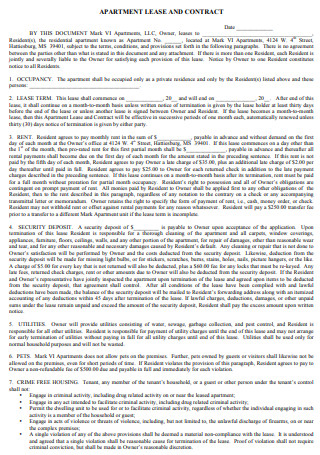
Apartment Lease and Contract
download now -
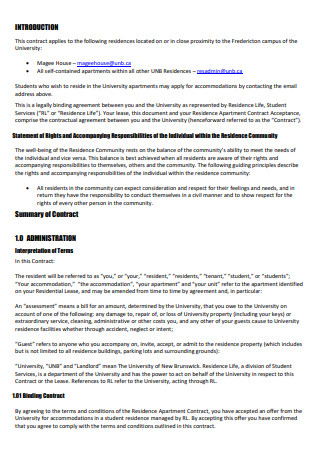
Residence Apartments Contract
download now -
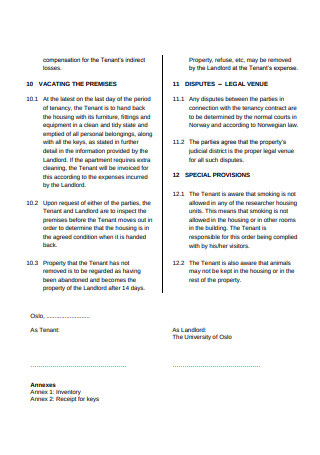
Tenancy Contract for Apartment
download now -
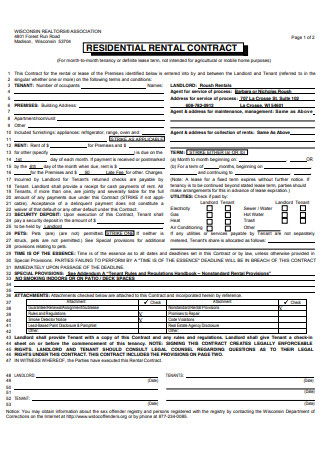
Residential Rental Contract
download now -
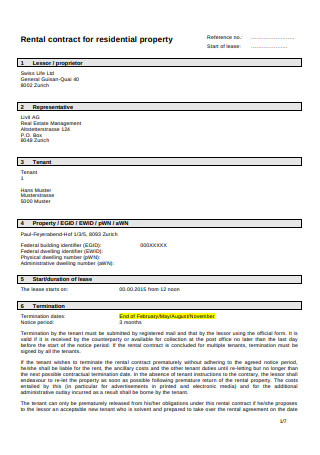
Rental Contract for Residential
download now -
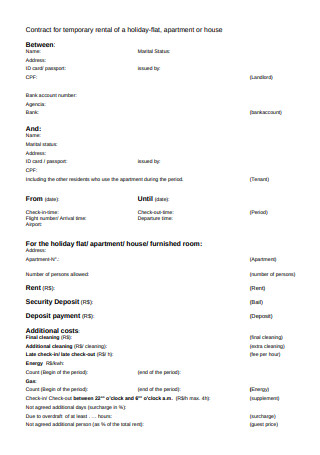
Contract for Temporary Rental
download now -
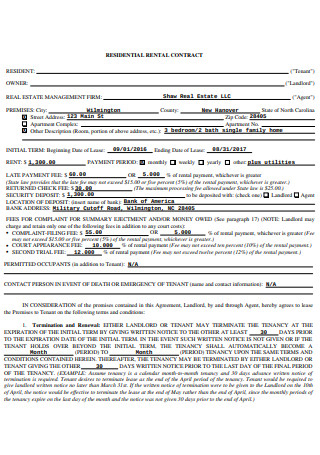
Sample Residential Rental Contract
download now
FREE Apartment Contract s to Download
25+ Sample Apartment Contract Templates
What Is an Apartment Contract?
The Four Types of Apartment Leases
What Apartment Rules Should You Know?
How to Formulate an Apartment Contract
FAQs
How do I cancel my apartment contract?
Can I redo the appearance of the apartment I’m renting?
When can my landlord enter the premises of the apartment I’m staying at?
What should I do if my neighbors are too noisy?
What Is an Apartment Contract?
The idea of apartment buildings began in the crowded cities of the Roman Empire. As an effort to solve urban congestion, the government conceptualized an insula, a four-story edifice that housed the ordinary folks. Since the construction of the apartment was cheap, the tenants had difficulty accessing the facilities they needed. And often, the insula caught severe and dangerous fires. Contrary to these unlivable dwellings in Rome, the modern type of apartment, which first emerged in Paris in the 18th century, had a different vibe. Unlike its predecessor, the Parisian apartment boasted excellent amenities to its tenants. In a way, apartments serve as the home for individuals who could not afford to purchase a large scale house in a suburban area at the moment.
But why do apartment contracts matter to landlords or homeowners? Apartment contracts are legally binding documents that contain the responsibilities and rights of the occupant and the owner. When the leaseholder damages a part of the real estate property, he or she has a liability to the proprietor. On the other hand, the apartment owner has obligations to provide adequate and efficient services to the tenant. Without the apartment contract, the two parties will not have an agreement as to the extent of their professional relationship.
The Four Types of Apartment Leases
In 2015, the American Housing Survey (AHS) conducted a study on the rental units available in the country. The data revealed that almost 50 million units are in the market, and over half of those properties have occupants. Moreover, it also disclosed that landlords or owners of the building were either individual investors or business institutions. These building proprietors encounter different faces and personalities every day, each one hoping to rent the apartment at a reasonable price. From a bunch of foreign and domestic students to short-term and long-term employees looking for a place to stay, the landlord should determine which candidate fits best as a prospective occupant. The contract between the tenant and homeowner depends on what both parties can offer. So, here are the four kinds of apartment leases that landlords can present to their future renter.
What Apartment Rules Should You Know?
For the longest time, many people depended on apartments or rental rooms when traveling or stopping at a different place. Students living in a new state or foreign entrepreneurs visiting the country for some months rely on leases to save money. According to an article from Medium in 2018, choosing hotels rather than serviced apartments can be more expensive, with the occupant paying more than 30% of the average price of leased residences. Moreover, apartments are significantly larger compared to hotel rooms, giving additional space for the tenant. But settling in an apartment also requires some series of rules for the boarders. So, here are a couple of regulations that you should be aware of.
Pet Policies and Restrictions
American Pet Products Association (APPA) recently conducted a survey to determine the number of pet owners in America. The results showed that over 85 million families have a pet in their houses. That means roughly sixty-seven percent of the population cuddle a furry friend when they’re at home. So, when a pet owner decides to move to another location, knowing the pet policies and restrictions is crucial. While some building owners allow pets in the area—but with certain limits—other homeowners refuse to permit tenants to bring their pets. With that, potential tenants have to check everything before signing any apartment contract. On the other hand, landlords should be specific about limitations in the area.
Responsibility in Using Utilities
Every occupant renting the apartment has an obligation to make sure that they use the utilities properly. The people in the building are sharing the amenities, whether through a common area or in their respective rooms. Thus, renters should know their duties when it comes to shared services. The landlord also informs the boarders about the utilities included in their contracts and when extra expenses are necessary.
Cleanliness Guidelines in the Establishment
Keeping the building squeaky clean remains a priority for many homeowners. But this task does not fall under the caretakers’ hands alone. Instead, tenants in the building are required to do the cleaning in their individual spaces. The duty also includes the correct segregation and recycling of trash, proper disposal of wastes, and avoiding consumption of hazardous materials. To make the task easier, landlords can create a list of guidelines for the convenience of occupants. In addition, cleanliness policies should also tackle how homeowners manage possible infestations in rooms and what methods apply to these situations.
Security Policies
According to the FBI’s Uniform Crime Reporting (URC) Program, over 2.5 million burglaries happen every year. Roughly 66% of the crimes are home break-ins, happening in residential areas around different states. Although the robberies are minor in number, it can be a terrifying experience for the tenant and the homeowner. With that in mind, the landlord must implement strict security measures to guarantee the safety of the people in the establishment. These policies also cover the restrictions that renters have to follow, especially when it comes to the welfare of everyone. For instance, storing dangerous solvents and smoking in bedroom quarters are prohibited.
How to Formulate an Apartment Contract
The Golden Gate City houses various historical monuments and places. From exemplary museums to beautiful parks, San Francisco has its excellent points. However, Statista revealed that the state has the highest standard rent—more than $3500, to be exact—for a single bedroom apartment. Although expensive, the location also has an impact on the pricing average of the apartments in the region. Whether based in The City by the Bay or not, you still need to use an apartment contract for the business transactions. And here are the four steps that will make the task of writing agreements more comfortable for you.
Step 1: Prepare the Apartment Policies and Rules
Individuals who show interest in an apartment space often back out when the landlord introduces the apartment rules and policies. From that, it’s best to start with the guidelines that possible tenants must follow when they sign the contract. The listed items on the contract are the concise versions of the “house rules.” When the party has an overview of the regulations, they can quickly decide to withdraw or continue with the plans.
Step 2: Discuss the Duration of the Stay
If the candidate agrees with the policies, the homeowner should begin discussing the duration of the stay in the apartment. Is it a short-term or long-term agreement? How many months will the tenant be in the area? Is there a possibility of extensions and renewals? The building proprietor should know the details to make accurate adjustments.
Step 3: Arrange the Payment Schedules
When complete, the two parties can proceed to the payment methods and schedules. If the contract employs a month-to-month deposit, the tenant has to provide the exact payment date and through what process of installment. But if the occupant chooses a different approach, the landlord can deliver the necessary alterations.
Step 4: Sign the Document
After the completion of the contract, the tenant and apartment can sign the deal. Each party should have a copy of the document as proof of the transaction. Additionally, the contract should have the list of penalties in case the renter breaks a rule or abandons the agreement. As the owner of the home, you also have to protect your assets as well.
FAQs
How do I cancel my apartment contract?
Tenants can’t immediately pack their bags and leave a leased apartment. Breaking a lease requires the time and patience of both the occupant and the homeowner. But first, the renter should present a valid reason for ending the contract before the predetermined date to avoid penalties. Depending on the decision of the landlord, the resident can either pay fines, have a legal case against them, or get a negative mark on credit records. Tenants can cancel the deal, but there are repercussions.
Can I redo the appearance of the apartment I’m renting?
Yes, you can redo some parts of the apartment, but with a particular limitation. You have to check the contract before you start changing the color of the walls or moving furniture from one side to another. If the deal refrains the renter from altering the look of the place, you should not do it.
When can my landlord enter the premises of the apartment I’m staying at?
At any cost, the landlord is not permitted to go to your apartment unless it’s an emergency. The room is a private place for you alone. So, if the landlord enters without permission, especially if it’s unnecessary, you should report it.
What should I do if my neighbors are too noisy?
Since you are paying rent, you have the right to call out the disturbances from neighbors. You can contact the landlord to report the problem you are facing with the people living next to your apartment.
Sheldon Cooper’s iconic phrase, “that’s my spot!” rings throughout the twelve seasons of The Big Bang Theory. Being adamant about his fervor for organization and boundaries, his attitude towards keeping the apartment spark clean and orderly makes him an ideal roommate—minus, of course, his quirks. Nevertheless, when you have plans to rent your place to some stranger, there are a few things to remember. Know the background checks and history of the candidate, do interviews, and make sure that you trust the person. Don’t forget to have apartment contracts to complete the deal.
